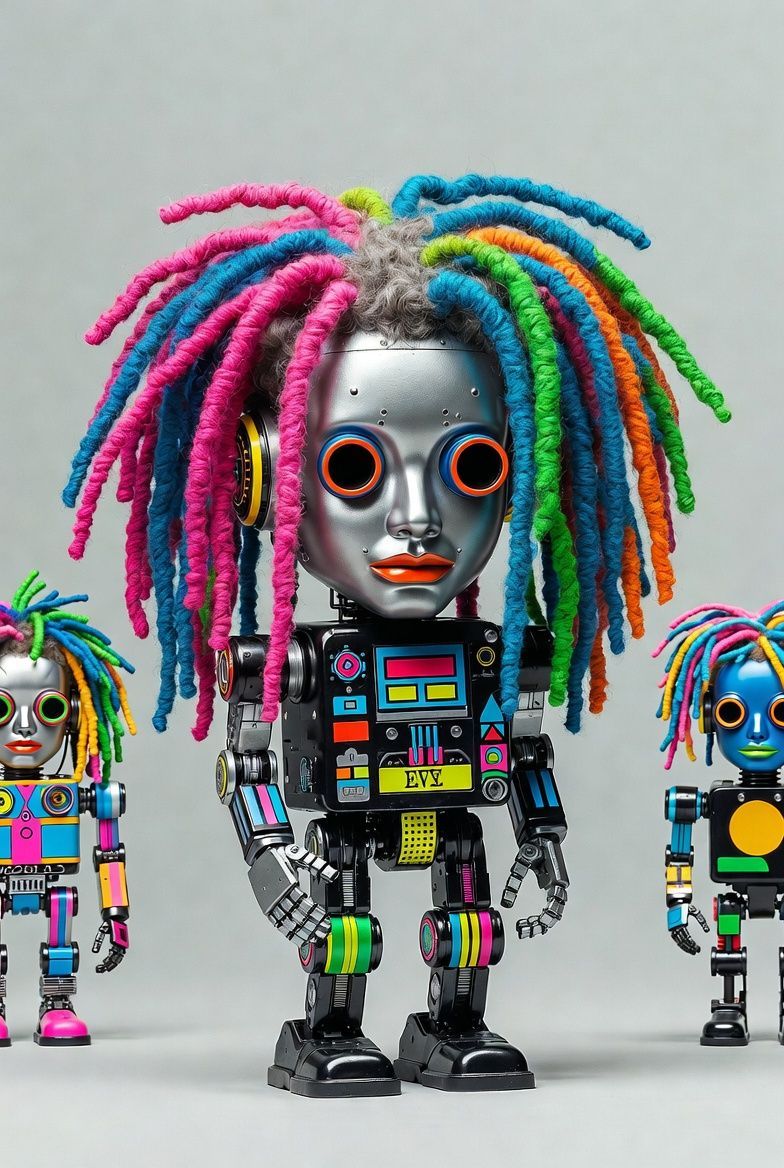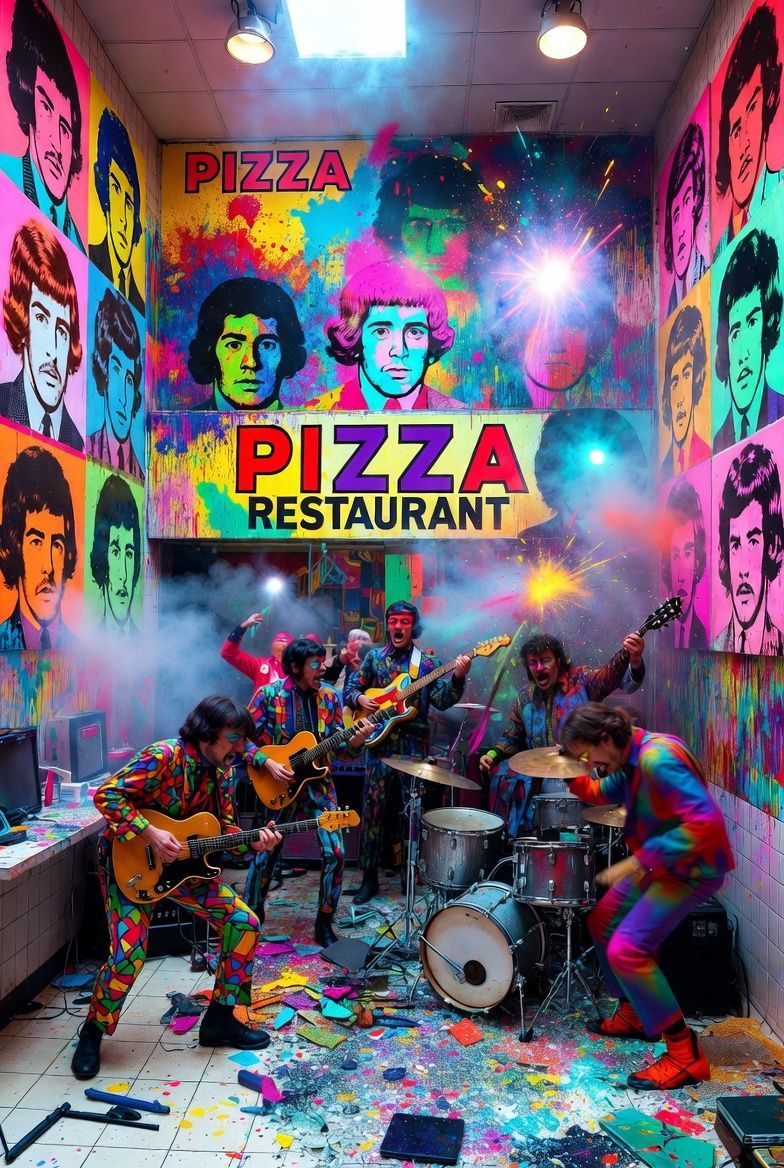AI SEO & GEO Marketing Agency for DTO Downtown Orlando
TL;DR
Downtown Orlando and Sodo operate as one high-intent ecosystem. Legal, medical, hospitality, professional services, and urban retail all compete for the same moments of decision across Google, Maps, and AI assistants. NinjaAI builds AI-first SEO and GEO systems that make your business rankable, answerable, and selectable across DTO and Sodo, turning hyper-local intent into booked appointments, walk-ins, consults, and revenue.
Table of Contents
Why DTO + Sodo Demand AI-First SEO
What GEO Changes vs Old SEO
How People Actually Search Downtown and South of Downtown
DTO + Sodo Playbook: What We Execute
Industries We Help Across DTO + Sodo
Neighborhood and Corridor Coverage
Stack and Workflow
DTO + Sodo Case Study (Anonymized)
Engagement Models
FAQ: SEO + AI in Downtown Orlando and Sodo
Next Step
Why DTO + Sodo Demand AI-First SEO
Downtown Orlando is a knife fight for attention. Sodo is the overflow pressure valve. Together, they form one continuous demand corridor where people do not browse, compare leisurely, or scroll endlessly. They decide fast.
Law firms compete with billboards and each other along Orange Ave and South Street. Restaurants live and die by weekend foot traffic around Lake Eola, Church Street, and the South Orange corridor. Medical practices and clinics around Orlando Health and Sodo Shopping Center capture urgent, trust-based searches where proximity matters more than brand awareness. Startups, consultants, and professional services straddle Creative Village, downtown offices, and south-of-downtown residential pockets.
If your business is not engineered to surface in Google Search, Google Maps, ChatGPT, Gemini, Perplexity, and voice assistants, you are invisible to customers who decide in fifteen seconds or less. AI assistants increasingly answer the question before a website loads. Maps often end the search entirely. This is not coming. It is already happening.
NinjaAI.com is the AI-first SEO agency built for DTO and Sodo. We fuse local SEO, GEO, and answer-ready content with ruthless technical discipline. Translation is simple. You rank in search, you appear in AI answers, and you convert downtown and south-of-downtown intent into real revenue.
What GEO Changes vs “Old SEO”
Classic SEO is still required. Keywords, links, on-page structure, crawlability, and technical health remain the foundation. Anyone telling you otherwise is selling theory instead of results.
GEO changes where the real competition happens.
GEO, or Generative Engine Optimization, focuses on making your business answerable inside generative systems like ChatGPT, Gemini, Perplexity, Copilot, and voice assistants. These systems do not rank ten blue links. They synthesize, summarize, and route users to a short list of trusted entities.
To win there, your business must be structured, locally grounded, and provable.
That means structured data beyond basic schema. Q&A blocks, services, neighborhoods, pricing ranges, hours, accessibility, parking context, and policies all matter. It means embedding location-dense entities across DTO and Sodo into copy and metadata. Landmarks like Lake Eola, Orlando Health, Dr. Phillips Center, Church Street Station, Kia Center, South Orange Avenue, Michigan Street, and Creative Village are not decoration. They are trust anchors for machines.
It also means off-site signals that AI systems can ingest and trust. Reviews, citations, menus, service descriptions, event mentions, and local press references matter more than raw backlink volume. Finally, it requires prompt-engineered content designed to be quoted, summarized, and reused by AI tools without distortion.
The result is not just being searchable. It is being selectable.
How People Actually Search Downtown and South of Downtown
DTO and Sodo searches are short, urgent, and situational.
“happy hour near lake eola now”
“downtown orlando personal injury attorney free consultation”
“urgent care near orlando health”
“best date night restaurant church street”
“dentist sodo orlando open today”
“coworking day pass ucf downtown”
These searches happen on Google and Maps first. Increasingly, they also happen inside AI assistants that return a single answer or a short list. If your business lacks DTO and Sodo entity coverage, consistent reviews, and answer-ready structure, AI routes that demand to someone else without asking permission.
DTO + Sodo Playbook: What We Execute
Our playbook is built to dominate both the downtown core and the south-of-downtown corridor without cannibalization or dilution.
We start with Local SEO and Maps domination. Google Business Profiles are rebuilt with correct categories, services, products, DTO and Sodo descriptors, seasonal attributes, and appointment types. Map Pack performance is engineered using proximity, prominence, and relevance, supported by tightly scoped landing pages that distinguish Downtown Orlando, DTO, and Sodo intent instead of blending them poorly.
Reviews are not treated as reputation fluff. We build controlled review velocity using QikReview pipelines, then pull real customer language into on-page Q&A and service descriptions so both humans and machines see consistent proof.
Next comes the GEO content system. Neighborhood and corridor pages read like real local guides, not SEO filler. Parking realities, walkability, courthouse proximity, Orlando Health adjacency, event traffic, and after-hours availability are written into the content naturally. Service pages include structured Q&A, pricing bands, turnaround times, comparisons, and FAQs that AI assistants can safely summarize.
We layer in event-aware snippets for First Fridays, concerts, Magic games, conventions, and downtown festivals to ride demand spikes without spam.
Technical SEO keeps everything stable. Site speed, Core Web Vitals, crawl budget, and index management are handled so growth does not break the site. Entity-based internal linking flows from DTO and Sodo hubs into service and conversion pages. URL patterns are clean and intentional to avoid cannibalization between “Orlando,” “Downtown Orlando,” and “Sodo.”
Authority building focuses on trust, not vanity. We secure targeted citations and mentions on reputable local and industry sources, leverage partnerships through sponsorships, vendor lists, and event calendars, and continuously audit backlinks to remove toxic noise.
Finally, we seed AI surfacing. Content is formatted for LLM retrieval with concise facts, policies, hours, ADA access notes, and parking tips. Q&A blocks are aligned with real DTO and Sodo searches. Prompt stacks ensure consistency across platforms as AI systems evolve.
Industries We Help Across DTO + Sodo
We work with industries where proximity, trust, and timing matter.
Legal practices including personal injury, criminal defense, divorce, immigration, and business law rely on courthouse proximity, consultation availability, and review credibility. Hospitality and nightlife businesses depend on foot traffic, events, and “right now” intent. Medical and wellness practices around Orlando Health and Sodo require urgency, clarity, and authority. Real estate and development teams need lease-up visibility and hyper-local credibility. Tech startups and professional services straddle Creative Village, downtown offices, and south-of-downtown residential demand. Arts, events, and venues compete for attention in crowded calendars.
Each vertical gets a tailored funnel based on booking model, peak hours, and walk-in versus appointment behavior.
Neighborhood and Corridor Coverage
We treat DTO and Sodo as one system with distinct intent zones.
Core Downtown includes the Central Business District, South Eola and Lake Eola Heights, North Quarter, Parramore and Holden-Parramore, Callahan and Lake Dot, and Creative Village.
South of Downtown coverage includes Sodo proper, the Orlando Health medical corridor, South Orange Avenue, Michigan Street, and surrounding residential and retail clusters.
Adjacent hot spots like Thornton Park, Mills 50, Ivanhoe Village, College Park, and SoDo edges are linked strategically without diluting downtown authority.
Every hub receives optimized landing pages, internal links, and micro-FAQs designed to capture “near me” and landmark-based searches tied to Kia Center, Dr. Phillips Center, Amtrak and LYNX, and major medical facilities.
Stack and Workflow
We move fast without breaking things.
Audits and intelligence come from SEMrush, Sitebulb, Search Console, and regex-based GSC filters tuned for DTO and Sodo queries. On-page structure and briefs follow entity-first outlines. Drafts are generated with modern language models, then edited by humans for accuracy, tone, and local truth. Reputation management runs through QikReview with alerts and response templates. Monitoring tracks rankings, Map Pack coverage, AI surfacing across Perplexity, Gemini, and ChatGPT, and real conversions. Reporting rolls into a monthly AI Visibility dashboard focused on revenue, not vanity.
DTO + Sodo Case Study (Anonymized)
A boutique family and divorce law firm operating along the South Orange Avenue corridor struggled with weak Map Pack visibility and thin service pages. Reviews were inconsistent and DTO and Sodo entities were largely absent.
Over ninety days, we rebuilt the Google Business Profile with service objects, DTO and Sodo descriptors, and appointment types. We produced Downtown Orlando and Sodo corridor pages with clean internal linking. A review pipeline increased velocity and pulled real client language into Q&A. Micro-snippets addressed parking, courthouse proximity, and after-hours consult availability.
The result was a one hundred forty-eight percent increase in organic sessions, top-three Map Pack placement for downtown and south-of-downtown queries, doubled consultation form fills, and first-page inclusion in AI answer sets for branded and category searches.
Engagement Models
The DTO Accelerator runs six to eight weeks and covers technical fixes, Google Business Profile overhaul, DTO and Sodo pages, review systems, and tracking. Growth retainers handle ongoing content, Map Pack expansion, authority building, AI surfacing checks, and experimentation. Project sprints support launches, rebrands, menu or service rollouts, and seasonal or event-driven campaigns.
We scope against revenue targets and competitive reality, not vanity metrics.
FAQ: SEO + AI in Downtown Orlando and Sodo
1. What is the difference between SEO and GEO?
SEO earns rankings in search results. GEO earns inclusion inside AI answers. You need both to win downtown and south of downtown.
2. Why treat DTO and Sodo together?
Search behavior overlaps. Users move physically and digitally between these zones in a single decision cycle.
3. Can you improve Google Maps rankings?
Yes. Categories, services, attributes, reviews, DTO and Sodo pages, and citations all matter.
4. Will this help with AI assistants like ChatGPT?
Yes. We structure content to be safely summarized and cited by AI systems.
5. How long until results appear?
Leading indicators often show in four to eight weeks. Material lead growth typically follows by month three or four.
6. Do reviews really matter for AI?
Yes. Reviews are one of the strongest trust signals LLMs ingest.
7. Can you handle medical and legal compliance?
Yes. We write within industry and platform guidelines.
8. Do you manage events and seasonal spikes?
Yes. We deploy event-aware content without spam.
9. Will this replace paid ads?
It reduces dependency over time by building owned visibility.
10. Can you work with an in-house team?
Yes. We integrate cleanly as an AI-SEO strike team.
11. Do you optimize for voice search?
Yes. Voice relies heavily on GEO and structured answers.
12. Is DTO too competitive to win?
Competition is high. That’s why structure and compounding matter.
13. Do you track AI citations?
Yes. We actively test AI surfacing.
14. Can you target specific landmarks?
Yes. Landmark adjacency is a core GEO tactic.
15. Will this hurt my broader Orlando rankings?
No. Done correctly, it strengthens them.
16. Do you handle technical SEO in-house?
Yes.
17. Is this only for large businesses?
No. DTO and Sodo favor precision, not size.
18. Can you help with rebrands?
Yes.
19. What if we already rank well?
We focus on conversion and AI inclusion next.
20. What’s the first step?
Audit DTO and Sodo visibility gaps.
Next Step
Bring us the three most profitable actions a customer can take with you. We will map DTO and Sodo demand to those actions and show exactly where visibility leaks are costing you money today.
Get your free DTO + Sodo AI-SEO audit. We review Google Business Profiles, entity coverage, site health, and AI surfacing, then deliver a short, realistic plan you can execute or hand off.
Contact Info:
Contact Us
We will get back to you as soon as possible.
Please try again later.










